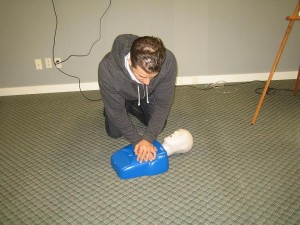San Francisco CPR is home to the best CPR programs in San Francisco, offering Basic Life Support and Advanced Life Support training programs at very affordable rates. If you need certification for CPR training, San Francisco CPR is the best provider you will find. All of the certificates we award students have a validity of two years, after which a re-certification program can be take to renew them. Re-certification is available for almost all of San Francisco CPR’s training programs.
Enrolling with San Francisco CPR can be done in a number of ways, the easiest and most popular being the application form on the San Francisco CPR website. Applications can also be sent through e-mails or over the telephone during business hours. Enrolment can also be completed in person during business hours as well.
What programs can I sign up for?
Training programs are divided into two categories: BLS and ALS training. The former program is a basic CPR skills training program that teaches students how to adequately give chest compressions and rescue breaths to an unconscious and unresponsive victim of cardiac arrest. Trainees are also taught how to use an automated external defibrillator (AED). ALS programs are much more complicated, tailored exclusively for healthcare providers. ALS programs are focused on providing CPR in a clinical setting such as a hospital.

Basic Life Support training
- Heartsaver CPR/AED – 4 hours – This is a general public program that teaches trainees how to give one-person CPR to a victim of cardiac arrest. Skills such as chest compressions, rescue breathing, and defibrillation are taught in the program, along with basic first aid skills such as wound care. Students can choose not to take the certification exam at the end of the program. There other version of this program tailors the curriculum for healthcare providers, with the program running for 4.5 hours. A skills test and written exam are given at the end of the program to get certified.
- Basic Life Support – 4.5 hours – Unlike the first two programs that teach one-person CPR, BLS training teaches both one-person and two-person CPR rescue. It also introduces the trainees to the Basic Life Support guidelines from the American Heart Association. The guidelines cover updated techniques and steps used when giving CPR. BLS re-certification is 4 hours long. Students need to pass a pre-test to get into the program, and post-tests to get their certification.
Advanced Life Support training
BLS programs teach students how to react to a situation outside of a clinical set up while ALS programs teach students how to manage cardiac arrest in a clinical setting, complete with CPR equipment and medication. Before students can enrol in ALS training, they have to complete the following requirements: (1) a valid BLS certificate and (2) a passing grade on the pre-test.
- Pediatric Advanced Life Support – This program teaches students about the crash cart with equipment and medications, pediatric pharmacology, pediatric assessment, and giving CPR to infants and children. It runs for 14 hours over two days. An update course is available, 6 to 8 hours long.
- Advanced Cardiac Life Support – The program has the same curriculum but focuses on management of adult victims. It runs for 16 hours over 2 days, with re-certification running for 5 to 6 hours.